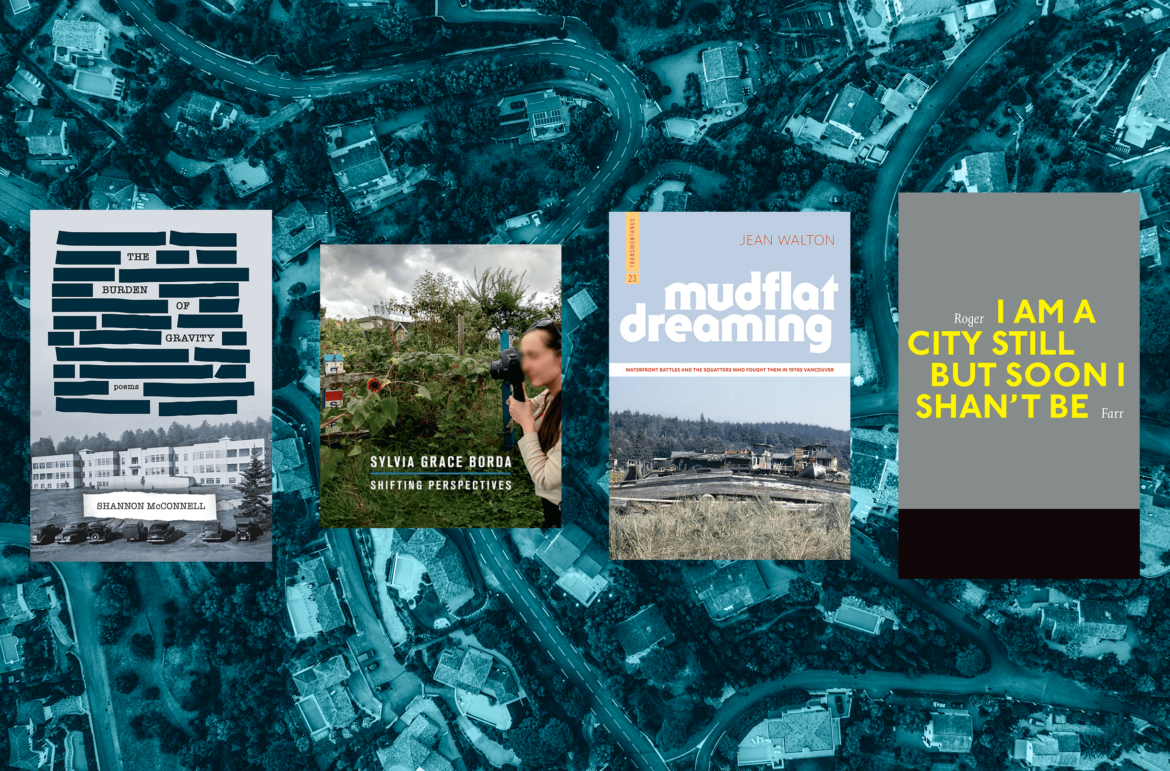Vancouver is rightfully lauded as an epicentre for creative writing, as many of the country’s most influential writers live, have lived, and have written about the Terminal City. What sometimes goes unrecognized when meting out this praise for the city is how much the Greater Vancouver Area contributes to this reputation. Burnaby, New Westminster, Surrey, the Tri-Cities, West Vancouver, and the North Shore each have their own unique flavour and influence they add to the literary canon of the area. These four books not only continue this trend, but they also help unpack some of our preconceived notions about what a suburb is and its relationship to Vancouver-proper.
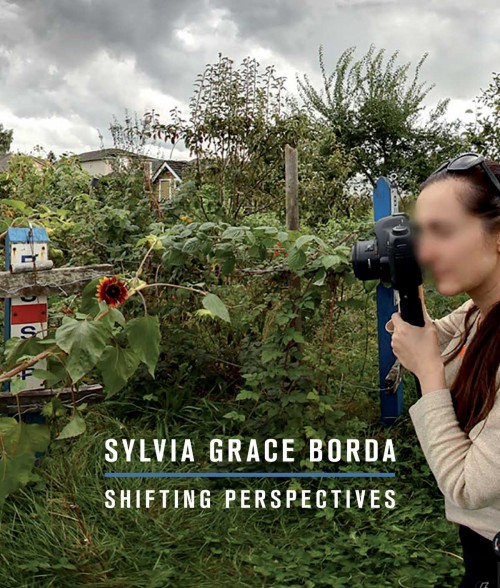
(Heritage House Publishing)
Could there be a better title to start with than Sylvia Grace Borda’s Shifting Perspectives (Heritage House Publishing). Renowned for taking on ambitious projects that reimagine metropolitan spaces, Borda’s projects have taken her from Surrey, BC all the way to Glenrothes, Scotland. Shifting Perspectives collects Borda’s vast body of work alongside essays from a host of respected curators, artists, and scholars, who each bring their own insights about the manner in which Borda’s practice has helped shape the medium of photography, as well our social awareness of urban environments. For those who appreciate the intersection of art and urban design, this book provides further insight into how these two worlds influence each other.
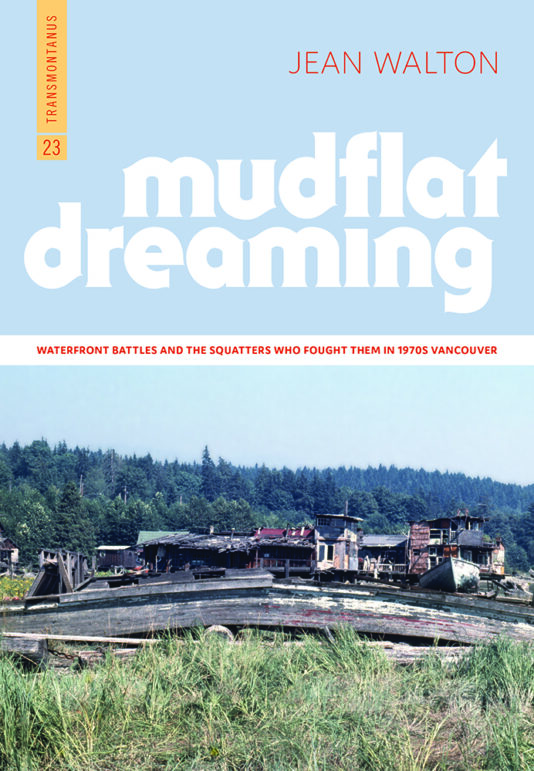
(New Star Books)
Author Jean Walton grew up within a stone’s throw from New Westminster’s Bridgeview neighbourhood. Little did she know that so much strife existed so close to her home. Mudflat Dreaming (New Star Books) investigates this struggle and the related tale of the North Shore’s Maplewood Mudflats community via “the intersecting domains of activist and documentary film, waterfront environmentalism, urban land use, utopian experiments, and working class struggle.” An excellent account of how two seemingly disparate communities each resisted the creeping concrete uniformity that is afflicting metro Vancouver at this time. Mudflat Dreaming begs readers to consider what modernity means and whether it is inherently a progressive concept.
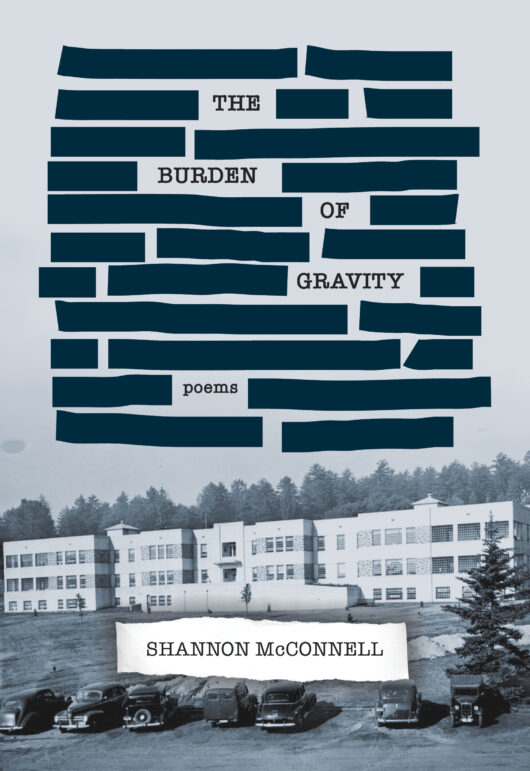
(Caitlin Press)
These days, New Westminster is known for its vibrant arts community replete with an abundance of diverse voices. But as Shannon McConnell’s “haunting and disarming debut [book of poetry]” explores, there is a darker side to the Royal City. The Burden of Gravity (Caitlin Press) is a tender elegy to the former residents of Woodlands School. Once a former “lunatic asylum”, Woodlands was eventually converted into a custodial training school for children with disabilities. Throughout her book, McConnell adopts several personas to grant a voice to those who were not afforded the opportunity to speak for themselves during their lives. Leaning on a number of different poetic techniques such as ekphrasis, erasure poetry, as well as conventional narrative, The Burden of Gravity “challenges readers to consider how we, in the aftermath of deinstitutionalization, choose to remember [establishments] like Woodlands School.”
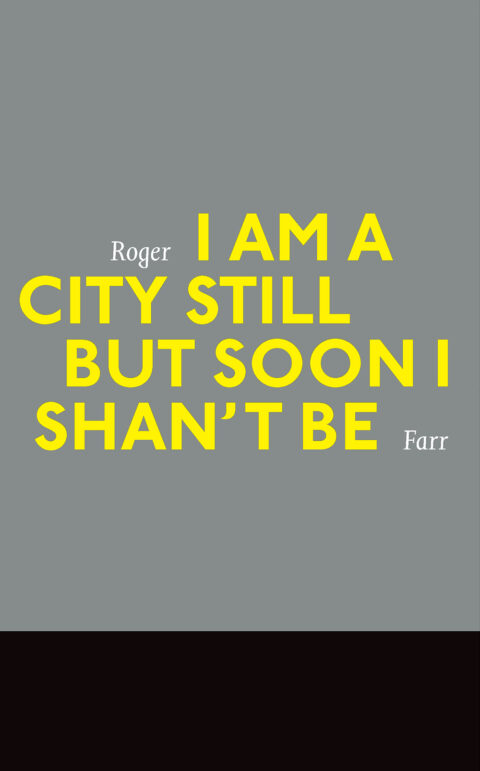
(New Star Books)
We close this list, about reimagining the suburbs, with a book that takes on the Herculean task of reimagining urban spaces, through the lens of the epic poem. Roger Farr spends the length of his new book I Am Still a City But Soon I Shan’t Be (New Star Books), by moving “impossibly between major and minor cities, crossing and re-crossing zones, edging boundaries, charting dreamscapes” as he tracks the evolution of Modern “unreal cities” into post-Real entities. Throughout the book Farr’s titular “I” provides a “psychogeographical I-witness account of this transformation” that teems with the lyrical complexity that has become a hallmark of his writing. The result is an ambitious lyric poem that asks the reader to confront what the “post-human city” might look like.
And, if you liked these titles, may we also recommend:
- Land of Destiny: A History of Vancouver Real Estate by Jesse Donaldson (Anvil Press)
- Rain City: Vancouver Reflections by John Moore (Anvil Press)
- I Saw Three Ships: West End Stories by Bill Richardson (Talonbooks)
- Lost Lagoon/lost in thought by Betsy Warland (Caitlin Press)
- People Among the People: The Public Art of Susan Point by Robert D. Watt (Figure 1 Publishing)
- Property Values by Charles Demers (Arsenal Pulp Press)

